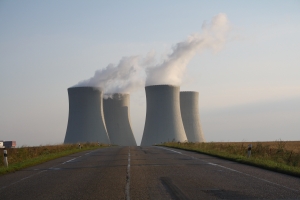On February 27, The American Institute of Architects (AIA) and nearly 1,000 businesses from across the country urged Congress to reject efforts to repeal the law setting goals for reducing fossil fuel use in federal buildings by 2030.
The letter comes in response to reports that the oil and gas lobby pushed to include a repeal of Section 433 of the Energy Independence and Security Act in the bipartisan Shaheen-Portman energy efficiency bill.
“It is unfortunate that the fossil fuel industry has demanded gutting federal energy laws through in the Shaheen-Portman bill,” said AIA CEO Robert Ivy, FAIA. “Sens. Shaheen and Portman have spent more than two years crafting a bipartisan energy efficiency bill. We support the original bill, which has many admirable provisions, but cannot in good conscience support legislation that undermines laws that help the federal government save taxpayers money by conserving energy.”
Last year, the Senate Energy and Natural Resources Committee approved the otherwise bipartisan Shaheen-Portman bill that encourages families, businesses and the government to save energy. It is not clear whether the revised bill can move forward in its current form.
“We remain committed to finding consensus solutions to improve Section 433,” Ivy said. “But so long as its opponents demand a full repeal, we do not believe the bill serves the interests of the American public.”
The letter states that design and construction companies across the country are already designing buildings that meet, and in some cases exceed, the current targets in Section 433. “In fact, Section 433 has enabled design firms to develop new design strategies that they are now using to help private-sector clients reduce their energy loads,” the letter states.
A full text of the letter can be found here. A “Myth vs. Fact” document about Section 433 of EISA can be found here.
Related Stories
Codes and Standards | Jul 8, 2024
New York State building code update would ban fossil fuels in new buildings
New York’s Building Code Council is set to include the All-Electric Buildings Act in its 2025 code update. The Act would ban natural gas and other fossil fuels in new buildings.
University Buildings | Jun 18, 2024
UC Riverside’s new School of Medicine building supports team-based learning, showcases passive design strategies
The University of California, Riverside, School of Medicine has opened the 94,576-sf, five-floor Education Building II (EDII). Created by the design-build team of CO Architects and Hensel Phelps, the medical school’s new home supports team-based student learning, offers social spaces, and provides departmental offices for faculty and staff.
HVAC | May 28, 2024
Department of Energy unveils resources for deploying heat pumps in commercial buildings
To accelerate adoption of heat pump technology in commercial buildings, the U.S. Department of Energy is offering resources and guidance for stakeholders. DOE aims to help commercial building owners and operators reduce greenhouse gas emissions and operating costs by increasing the adoption of existing and emerging heat pump technologies.
K-12 Schools | Apr 30, 2024
Fully electric Oregon elementary school aims for resilience with microgrid design
The River Grove Elementary School in Oregon was designed for net-zero carbon and resiliency to seismic events, storms, and wildfire. The roughly 82,000-sf school in a Portland suburb will feature a microgrid—a small-scale power grid that operates independently from the area’s electric grid.
Codes and Standards | Apr 12, 2024
ICC eliminates building electrification provisions from 2024 update
The International Code Council stripped out provisions from the 2024 update to the International Energy Conservation Code (IECC) that would have included beefed up circuitry for hooking up electric appliances and car chargers.
Sustainability | Mar 29, 2024
Demystifying carbon offsets vs direct reductions
Chris Forney, Principal, Brightworks Sustainability, and Rob Atkinson, Senior Project Manager, IA Interior Architects, share the misconceptions about carbon offsets and identify opportunities for realizing a carbon-neutral building portfolio.
Green | Mar 25, 2024
Zero-carbon multifamily development designed for transactive energy
Living EmPower House, which is set to be the first zero-carbon, replicable, and equitable multifamily development designed for transactive energy, recently was awarded a $9 million Next EPIC Grant Construction Loan from the State of California.
Sustainability | Mar 21, 2024
World’s first TRUE-certified building project completed in California
GENESIS Marina, an expansive laboratory and office campus in Brisbane, Calif., is the world’s first Total Resource Use and Efficiency (TRUE)-certified construction endeavor. The certification recognizes projects that achieve outstanding levels of resource efficiency through waste reduction, reuse, and recycling practices.
Legislation | Mar 21, 2024
Bill would mandate solar panels on public buildings in New York City
A recently introduced bill in the New York City Council would mandate solar panel installations on the roofs of all city-owned buildings. The legislation would require 100 MW of solar photovoltaic systems be installed on public buildings by the end of 2025.
Green | Mar 5, 2024
New York City’s Green Economy Action Plan aims for building decarbonization
New York City’s recently revealed Green Economy Action Plan includes the goals of the decarbonization of buildings and developing a renewable energy system. The ambitious plan includes enabling low-carbon alternatives in the transportation sector and boosting green industries, aiming to create more than 12,000 green economy apprenticeships by 2040.

















